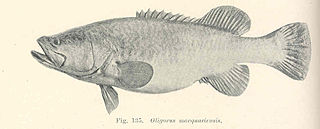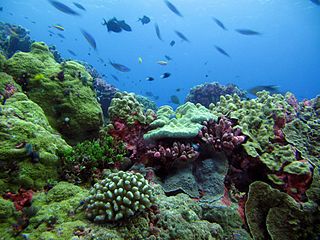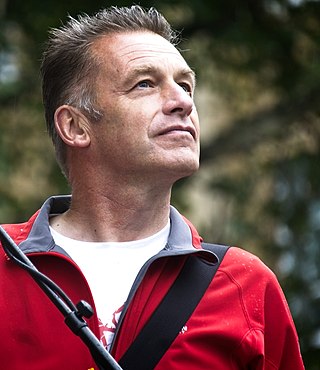| The Truth About Wildlife | |
|---|---|
| Genre | Wildlife |
| Presented by | Chris Packham |
| Country of origin | England |
| Original language | English |
| No. of seasons | 1 |
| No. of episodes | 3 |
| Production | |
| Executive producer | Simon Willis |
| Running time | 30 minutes |
| Production company | BBC |
| Release | |
| Original network | BBC One South BBC One South West BBC One West |
| Original release | 30 May – 13 June 2011 |
The Truth About Wildlife is the name of a regional wildlife programme originally broadcast on BBC One South, including the Oxford opt out service, BBC One South West, including the Channel Islands opt out service, and BBC One West between 30 May and 13 June 2011. Following the success of the programme, it was later repeated on BBC Two so the remainder of the regions could view it. [1] [2] [3]
The series is based around the views of naturalist Chris Packham as he presents his take on what's going wrong and right with Britain's wildlife and conservation techniques. [4]

Gerald Malcolm Durrell, was a British naturalist, writer, zookeeper, conservationist, and television presenter. He founded the Durrell Wildlife Conservation Trust and the Jersey Zoo on the Channel Island of Jersey in 1959. He wrote approximately forty books, mainly about his life as an animal collector and enthusiast, the most famous being My Family and Other Animals (1956). Those memoirs of his family's years living in Greece were adapted into two television series and one television film. He was the youngest brother of novelist Lawrence Durrell.

The Edwards Plateau is a geographic region forming the crossroads of Central, South and West Texas, United States. It is bounded by the Balcones Fault to the south and east; the Llano Uplift and the Llano Estacado to the north; and the Pecos River and Chihuahuan Desert to the west. San Angelo, Austin, San Antonio and Del Rio roughly outline the area. The plateau, especially its southeast portion, is also known as the Texas Hill Country.

The trout cod or bluenose cod, is a large predatory freshwater fish of the genus Maccullochella and the family Percichthyidae, closely related to the Murray cod. It was originally widespread in the south-east corner of the Murray-Darling river system in Australia, but is now an endangered species.

In ecology, habitat refers to the array of resources, physical and biotic factors that are present in an area, such as to support the survival and reproduction of a particular species. A species habitat can be seen as the physical manifestation of its ecological niche. Thus "habitat" is a species-specific term, fundamentally different from concepts such as environment or vegetation assemblages, for which the term "habitat-type" is more appropriate.
Springwatch, Autumnwatch and Winterwatch, sometimes known collectively as The Watches, are annual BBC television series which chart the fortunes of British wildlife during the changing of the seasons in the United Kingdom. The programmes are broadcast live from locations around the country in a primetime evening slot on BBC Two. They require a crew of 100 and over 50 cameras, making them the BBC's largest British outside broadcast events. Many of the cameras are hidden and operated remotely to record natural behaviour, for example, of birds in their nests and badgers outside their sett.

The Okarito kiwi, also known as the rowi or Okarito brown kiwi, is a member of the kiwi family Apterygidae, described as new to science in 2003. The species is part of the brown kiwi complex, and is morphologically very similar to other members of that complex. It is found in a restricted area of the Ōkārito forest on the West Coast of New Zealand's South Island, and has a population of only about 600 birds.

The ecological restoration of islands, or island restoration, is the application of the principles of ecological restoration to islands and island groups. Islands, due to their isolation, are home to many of the world's endemic species, as well as important breeding grounds for seabirds and some marine mammals. Their ecosystems are also very vulnerable to human disturbance and particularly to introduced species, due to their small size. Island groups such as New Zealand and Hawaii have undergone substantial extinctions and losses of habitat. Since the 1950s several organisations and government agencies around the world have worked to restore islands to their original states; New Zealand has used them to hold natural populations of species that would otherwise be unable to survive in the wild. The principal components of island restoration are the removal of introduced species and the reintroduction of native species.

The Edwards Aquifer is one of the most prolific artesian aquifers in the world. Located on the eastern edge of the Edwards Plateau in the U.S. state of Texas, it is the source of drinking water for two million people, and is the primary water supply for agriculture and industry in the aquifer's region. Additionally, the Edwards Aquifer feeds the Comal and San Marcos Springs, provides springflow for recreational and downstream uses in the Nueces, San Antonio, Guadalupe, and San Marcos river basins, and is home to several unique and endangered species.
Yellowstone to Yukon Conservation Initiative or Y2Y is a transboundary Canada–United States not-for-profit organization that aims to connect and protect the 2,000 miles Yellowstone-to-Yukon region. Its mission proposes to maintain and restore habitat integrity and connectivity along the spine of North America's Rocky Mountains stretching from the Greater Yellowstone ecosystem to Canada's Yukon Territory. It is the only organization dedicated to securing the long-term ecological health of the region.

Christopher Gary Packham CBE is an English naturalist, nature photographer, television presenter and author, best known for his television work including the CBBC children's nature series The Really Wild Show from 1986 to 1995. He has also presented the BBC nature series Springwatch, including Autumnwatch and Winterwatch, since 2009.
India is home to a large variety of wildlife. It is a biodiversity hotspot with various ecosystems ranging from the Himalayas in the north to the evergreen rain forests in the south, the sands of the west to the marshy mangroves of the east. India lies within the Indomalayan realm and is the home to about 7.6% of mammal, 14.7% of amphibian, 6% of bird, 6.2% of reptilian, and 6.2% of flowering plant species. India's forests contain about 500 species of mammals and more than 1300 bird species.

The western ringtail possum or ngwayir is a species of possum found in a small area of Southwest Australia. They are a cat-sized marsupial with a stocky build, dark greyish-brown fur, pale underparts and a long prehensile tail with a whitish tip. Ngwayir forage at night through the upper canopy of trees, feeding on young leaves, flowers and fruit, especially in groves of the weeping peppermint Agonis flexuosa. Breeding occurs mainly during the winter, the single juvenile emerging from the pouch after about three months. The population has declined by more than 95% since British settlement, due to clearing of habitat, fire and the introduction of the red fox Vulpes vulpes, and is classified as Critically Endangered. The population in most areas has catastrophically declined or become locally extinct, but strongholds remain in the urbanised areas near Busselton and Albany.

Hill farming or terrace farming is an extensive farming in upland areas, primarily rearing sheep, although historically cattle were often reared extensively in upland areas. Fell farming is the farming of fells, a fell being an area of uncultivated high ground used as common grazing. It is a term commonly used in Northern England, especially in the Lake District and the Pennine Dales. Elsewhere, the terms hill farming or pastoral farming are more commonly used.

Saving THE Planet is a season of nature documentaries with a conservation theme, screened on BBC Television in 2007 to mark the 50th anniversary of its specialist factual department, the BBC Natural History Unit.

Earthwatch Institute is an international environmental charity. It was founded in 1971 as Educational Expeditions International by Bob Citron and Clarence Truesdale. Earthwatch Institute supports Ph.D. researchers internationally and conducts over 100,000 hours of research annually. Using the Citizen Science methodology, Earthwatch's mission statement is "to engage people worldwide in scientific field research and education to promote the understanding and action necessary for a sustainable environment." As such, it is one of the global underwriters of scientific field research in archaeology, paleontology, marine life, biodiversity, ecosystems and wildlife. For over forty years, Earthwatch has raised funds to recruit individuals, students, teachers, and corporate fellows to participate in critical field research to understand nature's response to accelerating global change.

An endangered species is a species that is very likely to become extinct in the near future, either worldwide or in a particular political jurisdiction. Endangered species may be at risk due to factors such as habitat loss, poaching and invasive species. The International Union for Conservation of Nature (IUCN) Red List lists the global conservation status of many species, and various other agencies assess the status of species within particular areas. Many nations have laws that protect conservation-reliant species which, for example, forbid hunting, restrict land development, or create protected areas. Some endangered species are the target of extensive conservation efforts such as captive breeding and habitat restoration.
Livingstone is a national park and state conservation area located 30 kilometres (19 mi) south of Wagga Wagga and 10 kilometres (6.2 mi) east of Mangoplah, in the South West Slopes region of south western New South Wales.

Last Chance to See is a wildlife documentary first broadcast on BBC Two in the United Kingdom during September and October 2009. The series is a follow-up of the 1989 radio series, also called Last Chance to See, in which Douglas Adams and Mark Carwardine set out to find endangered animals. In this updated television version, produced for the BBC, Stephen Fry and Carwardine revisit the animals originally featured to see how they're getting on almost 20 years later.

The biodiversity of Wales is the wide variety of ecosystems, living organisms, and the genetic makeups found in Wales.
Planet Earth is a television and film documentary franchise produced and broadcast by the BBC. The franchise began in 2001 with the success of The Blue Planet. As of 2017, The Blue Planet has spawned 5 series and one feature film.